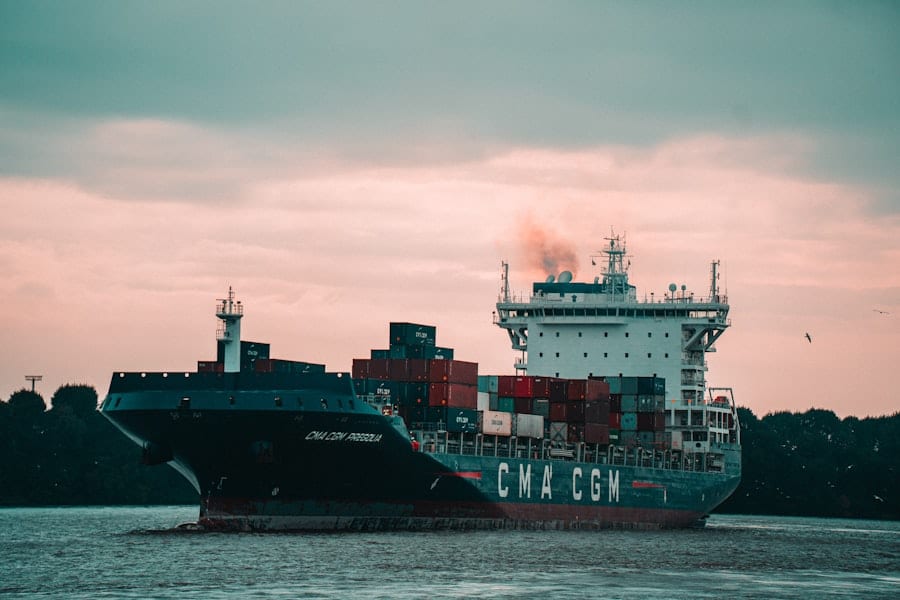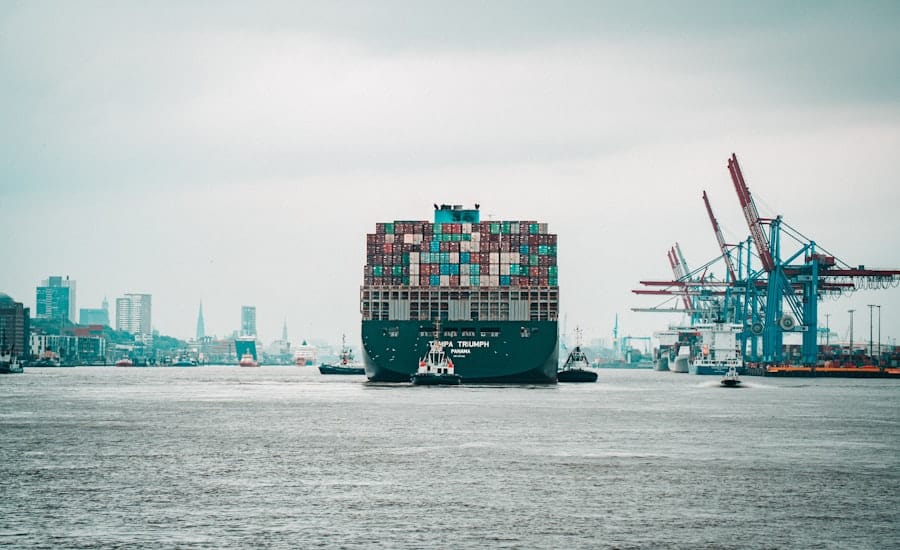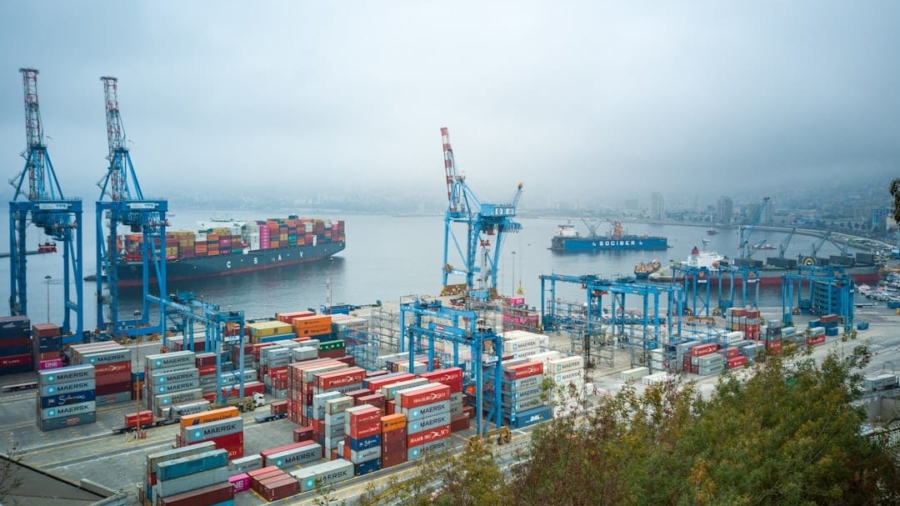Blockchain technology has emerged as a revolutionary force in various sectors, fundamentally altering how data is stored, shared, and secured. At its core, blockchain is a decentralized digital ledger that records transactions across multiple computers in such a way that the registered transactions cannot be altered retroactively. This characteristic ensures a high level of security and transparency, making it an attractive solution for industries that require reliable data integrity.
The technology was initially developed as the backbone for cryptocurrencies like Bitcoin, but its potential applications extend far beyond digital currencies. The decentralized nature of blockchain eliminates the need for intermediaries, allowing for peer-to-peer transactions that can significantly reduce costs and increase efficiency. Each block in the chain contains a list of transactions, a timestamp, and a cryptographic hash of the previous block, creating an immutable record.
This structure not only enhances security but also fosters trust among participants in a network. As organizations increasingly seek innovative solutions to improve operational efficiency and transparency, blockchain technology has gained traction across various sectors, including finance, healthcare, and logistics.
Key Takeaways
- Blockchain technology is a decentralized and secure way of recording transactions and data, making it ideal for supply chain management.
- Blockchain has the potential to revolutionize logistics and container management by increasing transparency, reducing fraud, and improving efficiency.
- Advantages of using blockchain in supply chain management include improved traceability, reduced paperwork, and enhanced security.
- Successful case studies of blockchain implementation in logistics include Maersk’s partnership with IBM and Walmart’s use of blockchain for food safety.
- Challenges and limitations of using blockchain in container management include scalability issues, interoperability, and regulatory concerns.
The Impact of Blockchain on Logistics and Container Management
In the logistics sector, blockchain technology is poised to transform container management by providing real-time visibility into the supply chain. Traditional logistics systems often suffer from inefficiencies due to fragmented data silos, lack of transparency, and reliance on manual processes. By implementing blockchain, stakeholders can access a single source of truth regarding the status and location of containers throughout their journey.
This capability is particularly crucial in an industry where delays and miscommunication can lead to significant financial losses. For instance, consider the journey of a shipping container from a manufacturer to a retailer. With blockchain, every transaction related to that container—from loading at the port to customs clearance—can be recorded in real-time.
This not only allows for better tracking but also enables stakeholders to respond swiftly to any issues that may arise during transit. The ability to verify the authenticity of documents and transactions reduces the risk of fraud and enhances compliance with regulatory requirements. As a result, companies can streamline their operations, reduce costs, and improve customer satisfaction by providing accurate delivery timelines.
Advantages of Using Blockchain in Supply Chain Management

The advantages of integrating blockchain into supply chain management are manifold. One of the most significant benefits is enhanced traceability. In industries such as food and pharmaceuticals, where safety and compliance are paramount, blockchain allows for detailed tracking of products from their origin to the end consumer.
This traceability not only helps in recalling defective products but also builds consumer trust by providing verifiable information about product sourcing and handling. Moreover, blockchain facilitates improved collaboration among supply chain partners. By providing a shared platform where all parties can access real-time data, organizations can work together more effectively.
This collaborative environment reduces disputes over shipments and fosters stronger relationships between suppliers, manufacturers, and retailers. Additionally, the automation of processes through smart contracts—self-executing contracts with the terms directly written into code—can further streamline operations by reducing administrative burdens and minimizing human error.
Case Studies of Successful Implementation of Blockchain in Logistics
Several companies have successfully implemented blockchain technology in their logistics operations, showcasing its transformative potential. One notable example is Maersk, the world’s largest container shipping company, which partnered with IBM to create TradeLens, a blockchain-based platform designed to enhance transparency and efficiency in global trade. TradeLens allows various stakeholders—including shipping lines, port operators, and customs authorities—to share information securely and in real-time.
By digitizing shipping documents and automating processes, Maersk has significantly reduced the time required for cargo clearance and improved overall supply chain visibility. Another compelling case is Walmart’s use of blockchain to enhance food safety. The retail giant implemented a blockchain solution to track the provenance of food products from farm to store shelves.
By recording every step in the supply chain on a blockchain ledger, Walmart can quickly identify the source of contaminated products during food safety incidents.
The success of these initiatives demonstrates how blockchain can address critical challenges in logistics while delivering tangible benefits.
Challenges and Limitations of Using Blockchain in Container Management
Despite its numerous advantages, the adoption of blockchain technology in container management is not without challenges. One significant hurdle is the integration of existing systems with blockchain solutions.
Transitioning to a blockchain-based system requires substantial investment in infrastructure and training for employees, which can be a barrier for smaller organizations. Additionally, there are concerns regarding data privacy and security. While blockchain is inherently secure due to its decentralized nature, the transparency it offers can be a double-edged sword.
Sensitive business information could potentially be exposed if not properly managed. Furthermore, regulatory uncertainties surrounding blockchain technology can create apprehension among companies considering its implementation. Navigating these challenges requires careful planning and collaboration among industry stakeholders to develop standards and best practices that ensure successful integration.
Future Trends and Developments in Blockchain Technology for Logistics

Hybrid Blockchain Solutions
One significant trend is the increasing adoption of hybrid blockchain solutions that combine both public and private elements. These hybrid models allow organizations to maintain control over sensitive data while still benefiting from the transparency and security offered by public blockchains. This approach could facilitate broader collaboration among supply chain partners while addressing privacy concerns.
Integration of IoT Devices with Blockchain
Another promising development is the integration of Internet of Things (IoT) devices with blockchain technology. IoT sensors can provide real-time data on container conditions—such as temperature, humidity, and location—which can be recorded on a blockchain ledger. This integration enhances visibility into the supply chain and enables proactive decision-making based on real-time information.
Enhanced Supply Chain Operations
As IoT technology becomes more prevalent in logistics, its synergy with blockchain could lead to more efficient and responsive supply chain operations.
How Blockchain Improves Transparency and Security in Container Management
Transparency is one of the hallmark features of blockchain technology that significantly enhances container management processes. By providing all stakeholders with access to a single source of truth regarding container status and history, blockchain eliminates ambiguity and fosters accountability throughout the supply chain. Each transaction recorded on the blockchain is time-stamped and immutable, ensuring that all parties can trust the accuracy of the information presented.
Security is another critical aspect where blockchain excels. The cryptographic techniques used to secure data on the blockchain make it nearly impossible for unauthorized parties to alter or tamper with transaction records. This level of security is particularly important in logistics, where fraud can lead to substantial financial losses and reputational damage.
By leveraging blockchain’s inherent security features, companies can protect sensitive information while ensuring compliance with industry regulations.
The Role of Smart Contracts in Streamlining Logistics and Container Management
Smart contracts play a pivotal role in enhancing the efficiency of logistics and container management by automating processes that traditionally require manual intervention. These self-executing contracts are programmed with specific conditions that trigger actions when predetermined criteria are met. For example, a smart contract could automatically release payment to a shipping company once a container arrives at its destination and is verified by IoT sensors.
The use of smart contracts reduces administrative overhead by minimizing paperwork and streamlining communication between parties involved in the logistics process. This automation not only accelerates transaction times but also reduces the likelihood of errors associated with manual processing. As more organizations recognize the potential of smart contracts to enhance operational efficiency, their adoption within logistics will likely continue to grow, further solidifying blockchain’s role as a transformative force in container management.
In summary, blockchain technology offers significant potential for revolutionizing logistics and container management through enhanced transparency, security, traceability, and efficiency. While challenges remain regarding integration and regulatory compliance, successful case studies demonstrate its viability as a solution for modern supply chain issues. As trends such as hybrid blockchains and IoT integration continue to develop, the future looks promising for organizations willing to embrace this innovative technology.
In a recent article on Wired.com, the focus was on how emerging technologies are shaping various industries, including logistics and container management. The article delves into the impact of blockchain technology on streamlining supply chain processes and enhancing transparency in the movement of goods. It further explores how companies are leveraging blockchain to optimize container tracking and management, ultimately improving efficiency and reducing costs in the logistics sector. This article provides valuable insights into the potential of blockchain in revolutionizing the way goods are transported and managed across the globe.
FAQs
What is blockchain technology?
Blockchain technology is a decentralized, distributed ledger system that records transactions across multiple computers in such a way that the recorded transactions cannot be altered retroactively.
How does blockchain technology benefit logistics and container management?
Blockchain technology can benefit logistics and container management by providing transparency, traceability, and security in the supply chain. It can streamline processes, reduce paperwork, and minimize fraud and errors.
What are the specific applications of blockchain in logistics and container management?
Specific applications of blockchain in logistics and container management include tracking and tracing of shipments, smart contracts for automated payments and agreements, and secure documentation and verification of cargo and container information.
What are the challenges of implementing blockchain in logistics and container management?
Challenges of implementing blockchain in logistics and container management include interoperability with existing systems, scalability, regulatory compliance, and the need for industry-wide collaboration and standardization.
What are some real-world examples of blockchain being used in logistics and container management?
Real-world examples of blockchain being used in logistics and container management include Maersk and IBM’s TradeLens platform for global trade, and the use of blockchain for tracking and verifying pharmaceutical shipments to prevent counterfeit drugs.

